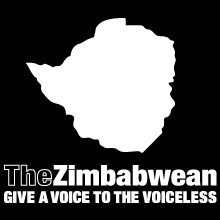Pride Nleya* is the wife of one of the activists detained with Munyaradzi Gwisai. They are currently awaiting a bail hearing on Wednesday 16 March.
How has his detention affected you?
Since we’ve been married we have never been apart for such a long period of time. Even when he was away for work, we would call each other everyday and communicate on Skype and email. With him being in remand, when I first heard I was shocked. I panicked because I didn’t really know what was going to happen. I took comfort in the number of people who had also been arrested with him, thinking that at least if there are so many, maybe nothing will happen. Initially when they were taken in and the State said it would take seven people to court, I panicked thinking of the Jestina Mukoko case. You know, you feel helpless because you don’t who to approach or where to go for help. All you can do is wait at Central police where no one tells anything. At the end of the day you don’t really feel safe.
If we didn’t have a child I think I would have taken it differently, but with a child, especially them being so close – they are like best friends, they do everything together. And she is used to her father calling even late at night to talk to her when he is away. Now we can’t communicate, and I can’t tell her her father is in prison for something that I’m not even sure of. With such a high charge, she can’t really comprehend what is going on. I know it would knock her hard if she found out. I’ve only just now gotten used to the idea that he’s in prison and it might take a while for him to get out, but looking at our daughter, I wonder if it’s ever going to be alright, and I’m not sure what to do, if I should tell her. This is one of the biggest challenges of our marriage. Not being in control, and not being able to help him the way I would want. It’s one of those things I can’t get my mind around.
What do you miss most about him?
Now that he’s in there, and I can only see him with a screen between us it’s like there’s a big, big, big wall between us and I can’t say something of the small nothings that we used to say to each other. There is no one to share that with. It’s just his presence, knowing that he’s there at home that I really miss. Just knowing that he’ll be back at home.
Has this situation changed the way you feel about his work?
No, if anything I think it has changed my perceptions as a citizen of Zimbabwe. At one point I thought I would quit my job and find another where I would have a platform to challenge the government. To me I don’t see anything wrong with what they were doing. They were having a meeting. The only charge I expected from the police was maybe public disorder but for them to say it’s treason? For the first four days of his incarceration I wasn’t even allowed to see him.
I used to be so scared because I knew the kind of environment that we live in; things like this were always going to happen. But you get used to this kind of thing and when it’s someone else it’s not the same as when it’s someone close to you. When you feel that there is so much injustice and you feel useless, hopeless and you can’t do anything. That’s what eats me up, that I don’t have a voice, even if I shout scream pull my hair out no one will listen. But one day I will find a way.
What is the first thing that you will say to your husband when he is released?
I’m not too sure. Maybe that I love him, or that I missed him. It’s like you’re in an emotional whirlpool, sometimes you are strong the next moment you realise you are not in control, and then you feel that you are not so strong. It’s really difficult for me to say; maybe I’ll just cry when I look at him, I’m not too sure.
* Not her real name










